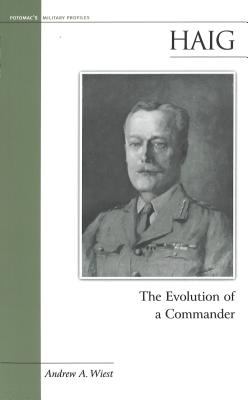
Book
|
Haig : the evolution of a commander
Copies
3 Total copies, 3 Copies are in,
0 Copies are out.
Title
Haig : the evolution of a commander
Call No
DA69.3.H3
Edition
1st ed.
Authors
Subjects
Haig, Douglas Haig, Earl, 1861-1928.
Haig, Douglas Haig, Earl, 1861-1928 fast (OCoLC)fst01800961
Haig, Douglas. swd
Haig, Douglas, Sir, 1861-1928.
World War (1914-1918) fast (OCoLC)fst01180746
Generals--Great Britain--Biography.
World War, 1914-1918--Campaigns.
Generals.
Military campaigns.
Kriegführung
Weltkrieg
World War, 1914-1918--Campaigns.
Great Britain.
Biography.
Biographies.
Haig, Douglas Haig, Earl, 1861-1928 fast (OCoLC)fst01800961
Haig, Douglas. swd
Haig, Douglas, Sir, 1861-1928.
World War (1914-1918) fast (OCoLC)fst01180746
Generals--Great Britain--Biography.
World War, 1914-1918--Campaigns.
Generals.
Military campaigns.
Kriegführung
Weltkrieg
World War, 1914-1918--Campaigns.
Great Britain.
Biography.
Biographies.
Language
English
Published
Washington, D.C. : Potomac Books, ©2005.
Publication Desc
137 pages, 8 unnumbered pages of plates : illustrations ;
ISBN
1574886835
(acid-free paper)
LCCN
2005009810
Dimensions
21 cm.









